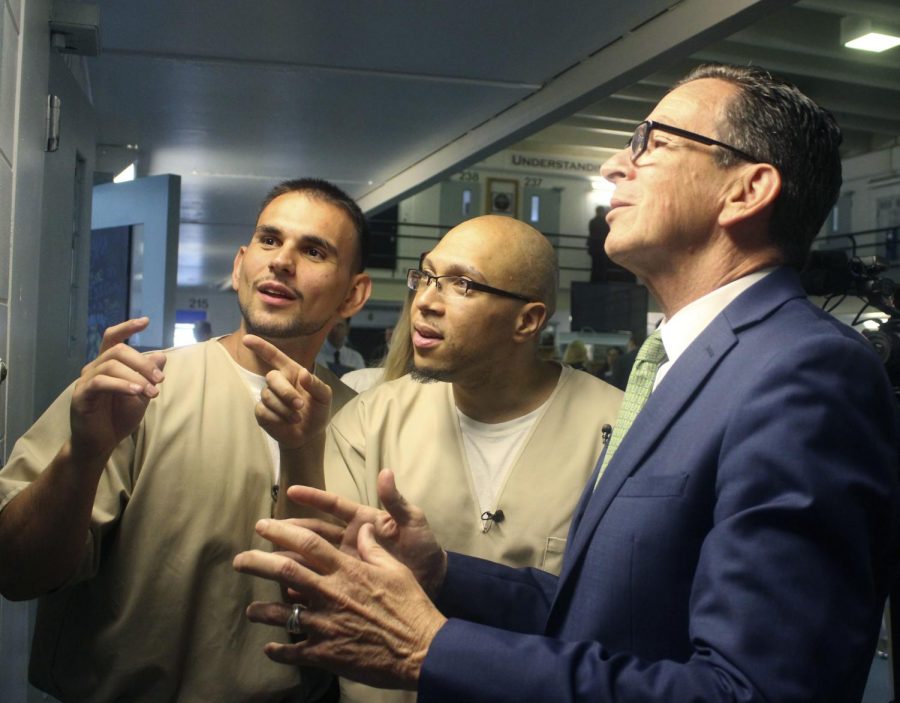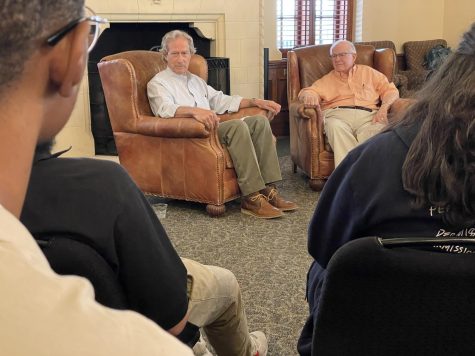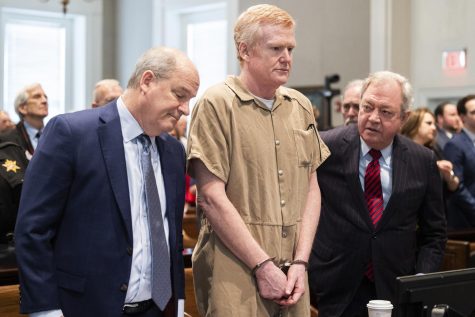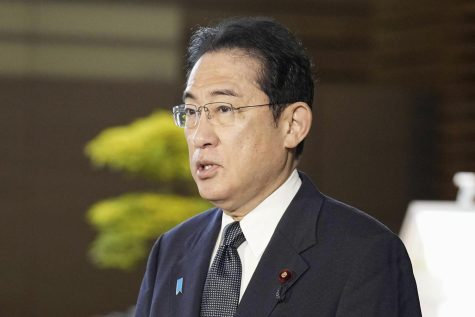Prison unit focuses on developing needs of young inmates
A Connecticut prison is teaching its 18- to 25-year-old offenders life skills.
PAT EATON-ROBB/Associated Press
Inmates Festim Shyuqeriu, left, and Isschar Howard, middle, tour Connecticut Gov. Dannel P. Malloy around a unit of the Cheshire Correctional Institution in Cheshire, Conn. on Wednesday May 30, 2018. The TRUE Unit is designed to support the needs of 18 to 25 year old inmates, whose brains are still developing.
CHESHIRE, Conn. — Demetriuse Geyer, who met his father while both were inmates inside a Connecticut prison, says he’s now getting the skills to give himself a better future, one outside the barbed wire.
The 22-year-old from Bridgeport is part of a prison program called TRUE (Truthfulness, Respect, Understanding and Elevating), which is designed specifically to address the needs of 18- to 25-year-old offenders.
It focuses on developing inmates as people through educational programs, family engagement and the mentorship of older inmates, some of whom are serving life sentences.
“I’m learning how to control my anger,” said Geyer, who is serving a five-year sentence for robbery. “I’m also learning how to write a resume, fill out a job application, handle my money — things I never learned in high school.”
Connecticut officials said they believe the program can become a national model. On Wednesday, as part of a “Reimagining Justice” conference, they took criminal justice officials from across the country through the unit, which houses about 70 inmates inside the Cheshire Correctional Institution.
It is based on a German prison, which Gov. Dannel P. Malloy and Correction Commissioner Scott Semple toured in 2015.
Younger criminals often act on impulse and are better served by a nurturing, supportive environment, rather than one that is strictly punitive, Semple said.
“Scientists have learned that it takes a human brain about 25 years to fully develop,” he said. “To some degree, we consider the teen brain still on training wheels.”
Inmates apply for the program and are chosen by a committee. But Semple also said those in the unit have varying disciplinary records in an effort to get a realistic idea of whether the program works.
“We’re not bringing cupcakes into this unit,” he said. “We’re trying to bring in folks who will challenge us.”
Semple said he was wary of allowing the unit to include the older mentors, worried that those inmates might take advantage of the younger prisoners. Instead they have become invaluable, he said, treating the inmates as younger versions of themselves and showing them how to avoid confrontations in prison and other pitfalls.
“I’m learning how to control my anger. I’m also learning how to write a resume, fill out a job application, handle my money — things I never learned in high school.” — Demetriuse Geyer
Family visits are encouraged and inmates are able to have physical contact, which includes holding their children or reading to them.
There are team-building exercises, often including the guards, turning what is an adversarial relationship into a supportive one, officials said.
“Yesterday I was talking to a correction officer outside and everyone was playing basketball, everyone was hanging out, and he looked at me and said, ‘I feel more like a camp counselor than a CO,’” said 24-year-old inmate Festim Shyuqeriu, who is serving time for robbery. “I said, ‘That’s a good thing.’”
Semple said he had hoped to open an entire prison for young adult offenders, but settled for the unit amid state budget cuts. It has been open for about a year and so far only about a dozen inmates have completed their sentences, he said.
A similar unit will open this summer at the York Correctional Institution, the state’s women’s prison, and further expansions are planned.
Semple said the state won’t have recidivism statistics for the unit for several years, but notes that disciplinary issues inside the TRUE unit are virtually nonexistent. Younger inmates account for about 25 percent of disciplinary incidents outside the unit, he said.
Several other prison systems, including those in South Carolina, Washington, D.C. and Massachusetts are starting programs based on the Connecticut model, Semple said.











